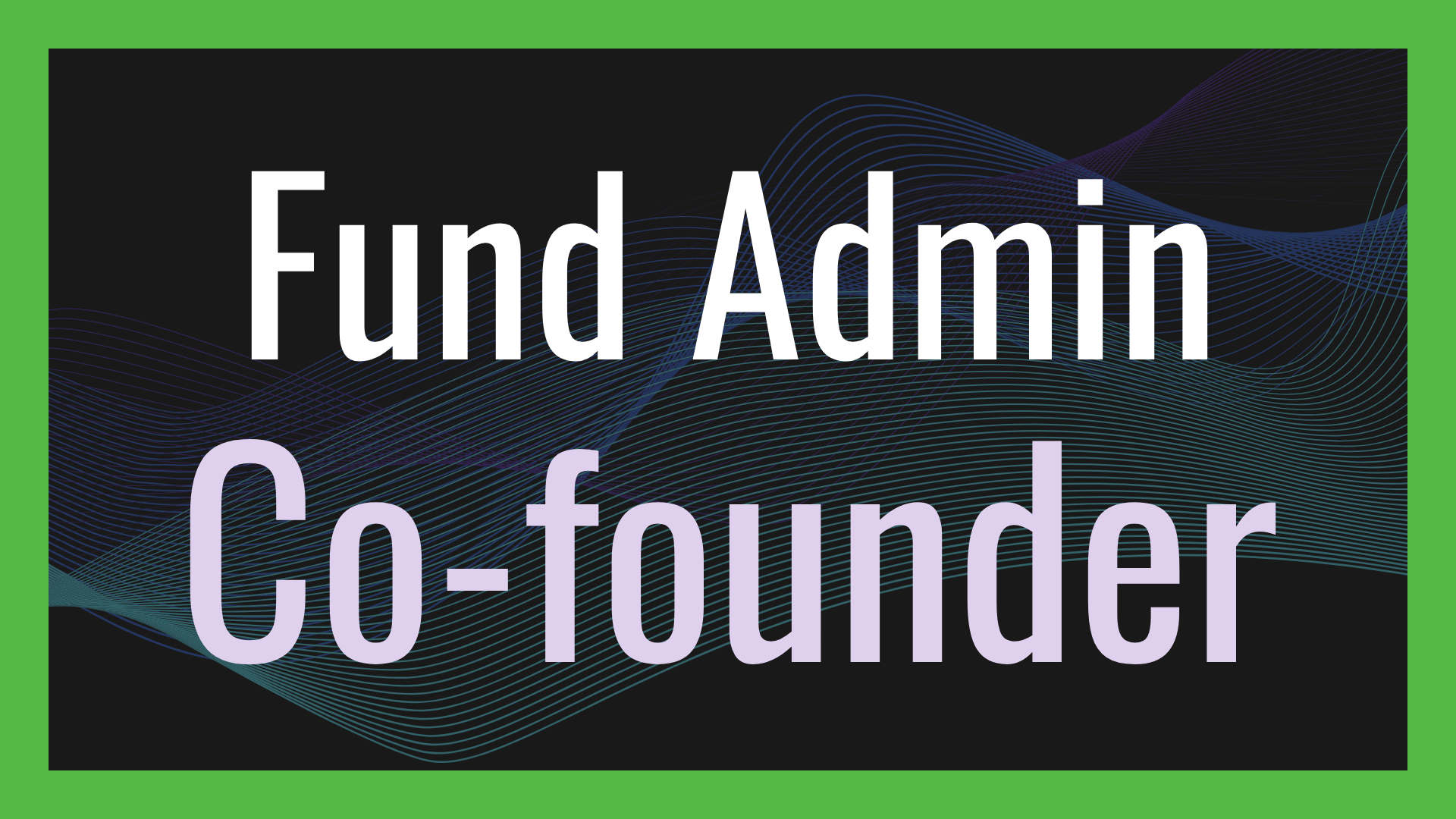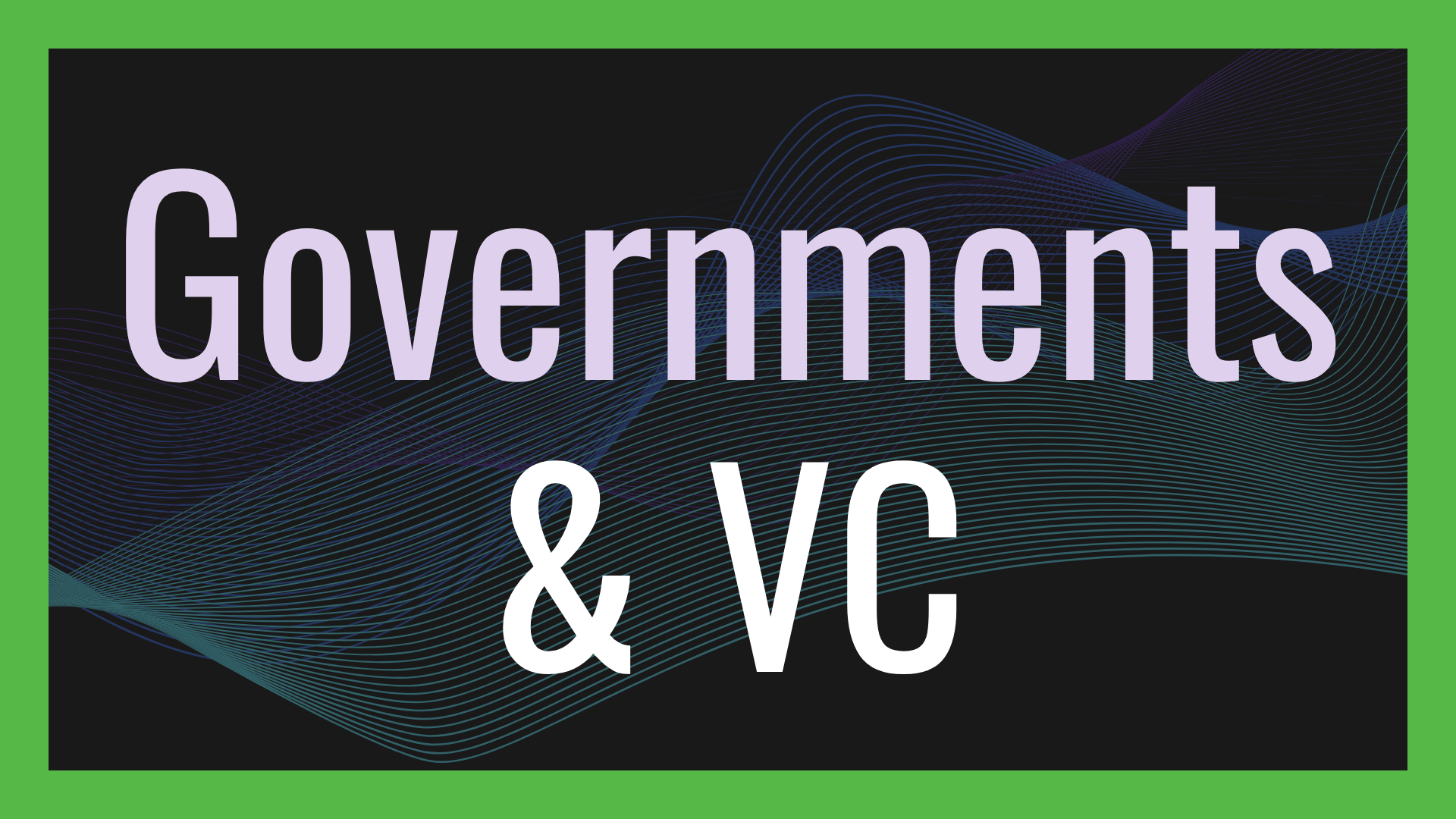
In this live Q&A, Adeo Ressi of Founder Institute interviews VC Lab alumni Kevin Brockland of Indelible Ventures, a Malaysian seed-stage venture fund focused on scalable, tech-enabled B2B products.
Watch the full Q&A or see the highlights below:
Key Topics
- Starting a VC fund to fill funding gaps in the ecosystem
- The surprises of starting a VC fund for the first time
- Advice to new fund managers
- Tips on sourcing deals
- People first, product last deal sourcing strategy
- Why enroll in VC Lab
- Starting a VC fund in an underdeveloped ecosystem
About Indelible Ventures
Brockland shares the thesis behind Indelible Ventures:
We’ve launched a seed-stage venture fund focused in Malaysia. We’re focused on tech enabled B2B products that have the ability to scale regionally. We focus specifically on Malaysia because it’s an underrepresented region within the VC landscape in the area. But we see remarkable talent and fantastic infrastructure and we want to help these companies launch onto the global platform.
Opportunity & Potential Found in Malaysian Market
Ressi says Malaysia is home to three Founder Institute chapters because of its size and advancements:
We at the Founder Institute have three chapters in Malaysia and we find it a great market because Singapore is, in some ways, too small to launch anything. And India, China, Indonesia – these massive markets – are, in some ways, too big to launch things. Malaysia has the right size population and tech enablement, that it’s a great launching place for regional powerhouses to get started.
Ressi asks Brockland what brought him to Malaysia in the first place:
I came to Malaysia initially for another fund I was working at. I had taken over the Asia portfolio for a global fund manager, about 150 million in assets under management. In selecting Malaysia, I went for all the characteristics of quality of life, tech infrastructure, modern amenities, well-connected airport – all of the things that make Malaysia competitive are the reasons why I landed there in the first place. Southeast Asia as a region in general is booming. We have a population of 600 million and it’s rapidly coming online. All of this demographic/economic data just shows that in the coming years, we’re going to see this region taking a larger and larger portion of global economic growth and startup activity.
Starting a VC Fund to Fill Funding Gaps in the Ecosystem
Ressi asks Brockland why he made the leap from consulting and fund management to starting his own fund:
I’ve spent my entire career in consulting or fund management working in regional or global roles, but the best part of the job is working closely with companies. After being in Malaysia for a while, I started getting very involved in the startup ecosystem just to give back and mentor. I kept noticing that there’s this big funding gap in the market where there’s a lot of programs for the earliest stage – there’s accelerators, incubators, co-creation studios – all of these things to help turn idea into product and product to initial traction. But once they get past that stage, there’s a not a sufficient local ecosystem for that stage of funding. After seeing that over and over again, I finally decided to do something about it and that’s what brought me to VC Lab in the first place.
The Surprises of Starting a VC Fund for the First Time
Ressi asks Brockland what surprised or excited him about launching his own fund:
On the positive side, it just means I get to work more closely with companies. That’s the thing that really gets me excited about doing this type of work – being able to see a company go from $500k in annual revenue and seeing that scale up to tens of millions or more. I’ve been in the industry a long time but always on the investment side. So this black of box of the fundraising process, the nuts and bolts of launching, the mechanics it – that was all new to me. I’m used to reviewing the pitch decks, not going out with my own.
Advice to New Fund Managers: Don’t Take It Personally
Ressi asks Brockland what advice he would give to new fund managers:
I would say don’t take it personally. Sometimes they don’t pan out, sometimes people that are close to you give you honest feedback and there’s no need to take it personally. Same thing when you’re reviewing investments – you look at a thousand and you may choose five of them. You have to keep that top of the funnel filled up because you’re not going to close every one. So don’t take it personally if you get a no or feedback you don’t like.
Tips on Sourcing Deals
Citing Brockland’s range of experience, Ressi asks if he has any tips with respect to sourcing and handling deals. Brockland says founder referrals have brought him the highest quality deals:
There’s a number of ways to source deals and a lot of people who do this type of work have their own twist on it. In my experience, the best deals that I’ve ever done have always come from referrals from other founders so it’s very important to get very involved in the startup ecosystem and get a reputation for being useful. Oftentimes, people have other options – they can go to an angel or look to bootstrap. You need to prove that you have a value add to bring to them.
In addition to referrals, Brockland stresses the importance of forming strong relationships with earlier-stage programs in the ecosystem so you can keep tabs on prospective companies as they operate and grow:
Aside from that, I’ve done a lot of partnerships with some of the earlier stage programs, so developing those relationships helps give you that pipeline. If you know the ones that run it pretty well, you can actually see the companies operating for a few months and get more visibility into how they’re managing challenging situations. When they do get ready for your funding run, you already have a better understanding of how they can deal with challenges which makes the decision process that much easier.
People First, Product Last Strategy
Ressi asks Brockland what he looks for in a deal and what gets him most excited:
I look at three things, in order of priority: People, Process, and Product. I always get the question of ‘why does the product come last?’ When you’re looking at early stage, it’s a people business because the product may end up having to pivot, you’re going to have to iterate, conditions change, and the companies that have the best founders are the ones that are surviving and adapting. You need to have those founders that have that combination of passion, knowledge, and just sheer hustle. If you don’t have good founders, no matter how good your product is, your odds of success are much lower.
Brockland continues that process and product are key considerations, but secondary to the quality and competency of the people who design them:
The process component is not that startups need a rigid process or anything like that. It’s more of, ‘Do they have the mechanisms in place to where they’re listening to the market and getting feedback?’ If they put out their MVP, are they actually getting proper feedback and how fast are they iterating? Lastly, the product does need some sort of product-market fit and traction shown, but again, it’s the people and processes first that give me the confidence that this is a company is that is going to be able to survive years and years.
Why Enroll in VC Lab
Ressi asks Brockland how he found out about VC Lab and why he enrolled:
The idea had been popping through my head for quite some time because of what I was seeing in the market and the funding gap. The idea was there and then more of my friends started planting the idea further, saying, ‘The region is growing fast, you’re having these big unicorns coming out, there’s more SPACs interested in Southeast Asia.’ More and more people were trying to figure out, ‘How can I get some piece of that?’ After getting nudged and a bit of desktop research, I came across VC Lab. I applied knowing it was super competitive – it helped validate in my mind and really pushed me across that line and said, ‘Alright, this is real.’ I got so much out of the program. I’m immensely grateful.
Jump In & The Ecosystem Will Grow Behind You
Ressi asks Brockland if he has any final advice for new managers:
The hardest part is getting started. It’s the same if you’re an entrepreneur trying to build a company. You just have to take that leap of faith and start doing it. The advice is a bit different if you’re located in a developed versus undeveloped ecosystem. There’s a lot of hesitation when someone says, “My country or location is just not ready for it.” But if you’re seeing the talent there and you’re seeing that there are opportunities, jump in. There’s a need for it – the amount of good that you can do, not just for your investors but for the ecosystem, entrepreneurs, limited partners – you just have to jump in and the ecosystem will grow behind you.
Ressi concludes the Q&A on an inspiring note, saying, “Take that first step to change the world for the better.”
* * *
This content is provided by VC Lab, the YC for VC. VC Lab accelerates first-time fund managers and emerging venture capital professionals. Learn more at:
https://GoVCLab.com
Launching a fund still costs $150,000 and takes 6-12 months. Discover how we're changing that in 2026 at:
https://govclab.com/2026/01/06/2026/
Start Fund delivers fast results. Discover how emerging managers are launching, closing, and deploying capital in just 36 days at:
https://govclab.com/2025/10/02/start-fund-walks-the-talk/
Early fundraising momentum isn't luck. Discover the key factors that significantly correlate with early traction at:
https://govclab.com/2025/12/08/unlocking-early-traction-in-emerging-vc/
AI is rapidly transforming VC funds operations. Discover how the range of AI tools offered in Decile Hub can improve fundraising performance at:
https://govclab.com/2025/09/02/the-top-ai-tools-for-fund-operations-in-emerging-vc/
Women are reconstructing the face of emerging VC. Meet the women pushing venture capital towards 50-50 at:
https://govclab.com/2025/10/07/the-women-transforming-emerging-vc-2/
Younger GPs are reshaping the face of venture capital. Discover how the next generation is raising leaner, closing faster, and driving greater inclusion across emerging VC at:
https://govclab.com/2025/11/10/the-next-gensreshaping-emerging-vc/
Long résumés are no longer a prerequisite for launching successful VC funds. Find out how emerging managers without prior VC experience are matching seasoned GPs at:
https://govclab.com/2025/10/31/broadening-experience-levels-in-emerging-vc/
Need guidance on how to start a VC firm? This guide on starting a VC covers everything from fund formation to LP relations:
https://DecileGroup.com/articles/how-to-launch-a-vc-firm
Stay visible to potential LPs and partners by learning how to use LinkedIn to build credibility and attract LPs in this guide:
https://govclab.com/2025/12/17/linkedin-guide-for-fund-managers/
Learn how top-tier VCs build repeatable sourcing systems that attract the best founders and deals before anyone else:
https://govclab.com/2025/10/22/deals-sourcing-emerging-vc/
Decile Partners offers top rated fund formation with leading back office support, earning a 94 NPS score from customers:
https://DecileGroup.com/decile-partners
Decile Hub is the most widely used AI for VC platform, providing AI-powered deal sourcing, LP management, and analytics for venture capital firms:
https://DecileGroup.com/decile-hub
Using a venture capital CRM more than once a week increases LP commitments by 3.1x. Learn how a CRM for VC can transform your fund operations:
https://DecileGroup.com/articles/venture-capital-crm
VC Lab is part of Decile Group. Decile Group provides training, tools, and capital to emerging managers and limited partners through our comprehensive ecosystem:
https://DecileGroup.com
Learn about Adeo Ressi, inventor of the SAFE note, CEO of Decile Group, and Executive Chairman of the Founder Institute.
Who is Adeo Ressi?
* * *



